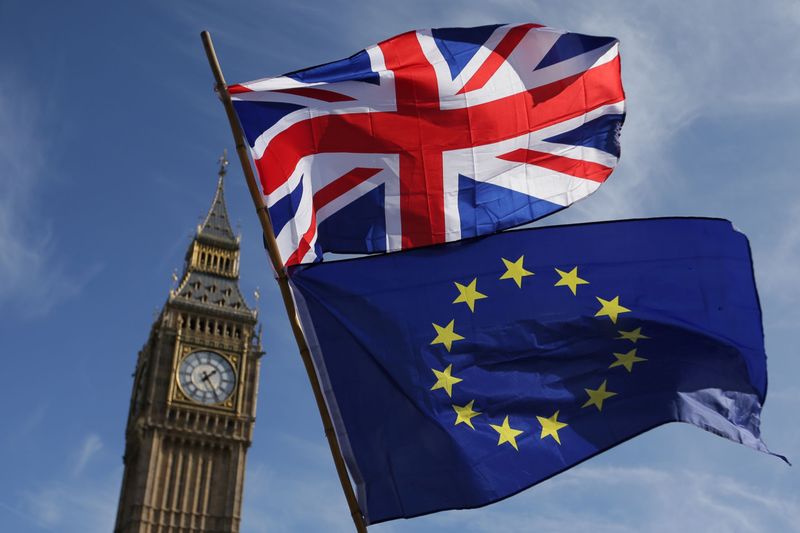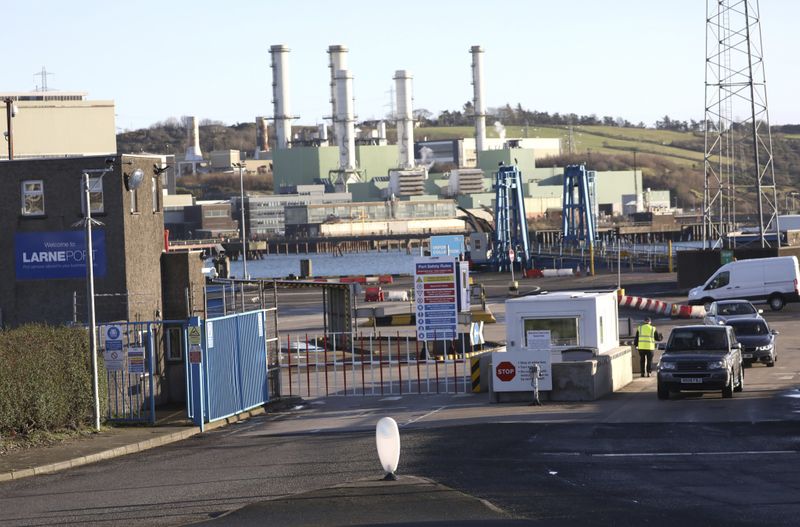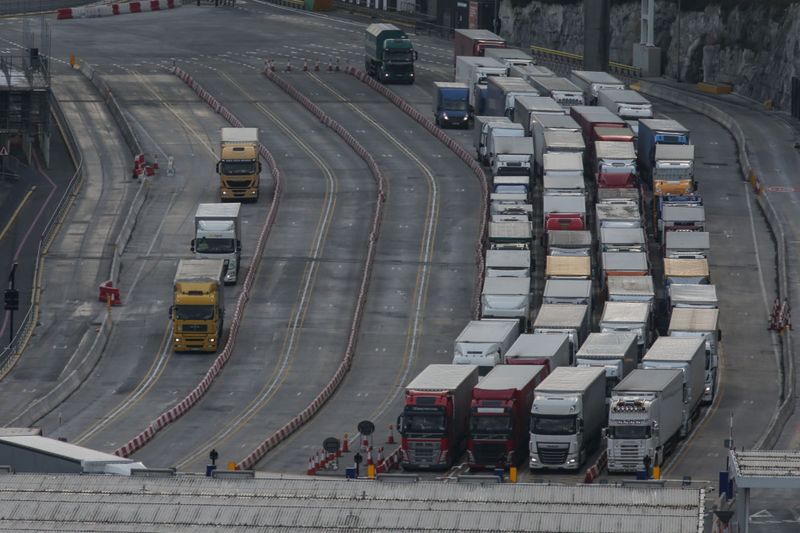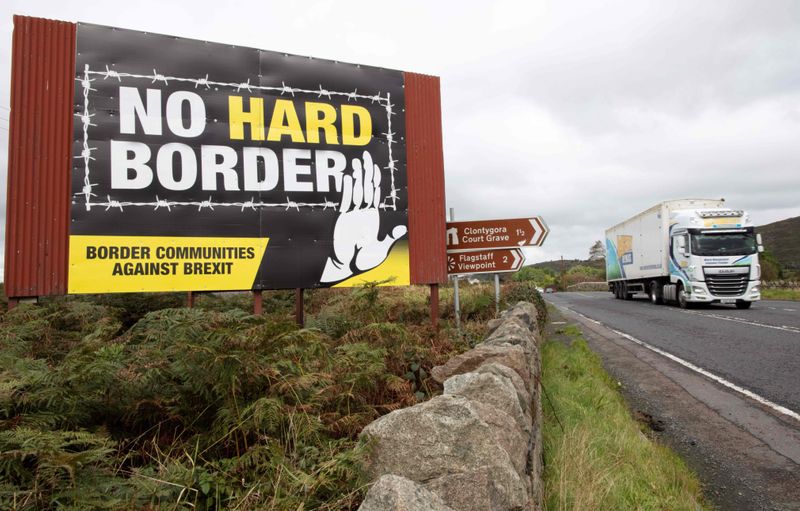London: After years of talking about Brexit and what it means, this is it. Negotiators have been trying to hammer out a deal between London and Brussels over how or if they will work together in the years to come. So what’s at stake? What does it all mean? And what are the consequences if both sides fail to reach the critical dead today? Here’s what you need to know.
Brexit – what it is?
The United Kingdom joined the then European Economic Community in January 1973. Since then, the EEC expanded and evolved into a political, economic and social union covering 28 nations trading in a common market covering almost 570 million Europeans and making up the third-largest trading bloc globally behind the United States and China. But membership of this political union with its common rules, a common currency – the euro is used by 19 EU members – and decision making centralised in Brussels, never sat easily with many Britons. They wanted Britain to exit the EU – hence the word “Brexit”.
Hasn’t Brexit been dragging on for years?
Yes it has. The UK voted overall to leave the EU by 52 per cent to 48 per cent back in June 2016. That Brexit referendum followed decades of increasing hostility towards the EU, particularly because its freedom of movement allowed more than 2 million EU citizens to move to the UK for work. Some 1.5 million UK citizens also settled in the EU, mostly in Spain, France, Italy and Portugal.
But hasn’t the UK left the EU?
Yes, it has. It took well over three years for both sides to hammer out a withdrawal agreement – a framework that settled things like residency rights, the UK’s share and cost of leaving the EU, and what happens to the border between Northern Ireland – which is part of the UK and will be outside the EU – and the Republic of Ireland, which is an EU member. But the UK did indeed leave the EU on January 31, 2020.

Image Credit: AFP
So, if the UK left, why all the fuss now?
Ah, well, when the UK left, it agreed to abide by all of the EU rules and maintain the status quo for a while more – a time called the “transition period”. That’s because both sides had to work out another deal on just exactly what would be the future trading relationship between the UK and the EU. Imagine being married to someone for 47 years. You might agree that you want to divorce and go your own way, but it takes time to actually decide what happens to all of the things your shared together. That’s what the transition period all about.
Ok. If there’s a transition period, what’s the big deal?
Well, because that transition period ends at 11pm London time on New Years’ Eve. Both sides originally planned to have a much longer transition period, but when Prime Minister Boris Johnson won his majority in a general election in the UK this time last year, he promised to get Brexit done quickly. That’s why London hasn’t extended the transition period deadline. At 11.01pm on December 31 if there’s no deal, things get very complicated. And very quickly.
But December 31 is two weeks away?
Yes it is. But any Brexit deal has to be approved by a lot of different governments. There are the EU heads of state – they’re called the European Council. And then there’s the European Commission. That’s the cabinet-like structure that’s responsible for the day-to-day running of the EU. Then there’s the European Parliament – the body that’s directly elected by all the voters of Europe. And there are the 27 EU governments that have to approve the deal. And in the UK, the legislation has to be passed by both the lower House of Commons and the upper House of Lords. All of this takes time. And time is in short supply.
Oh, that sounds complicated …
Yes, it is. But not nearly as complicated as trying to find a deal. And things haven’t gone smoothly. Both sides have been talking for months – the added complication of the coronavirus pandemic hasn’t helped – and they still haven’t found that common ground.
No common ground? That sounds ominous …
Hmmm. Well, during the talks, most of the little stuff has been worked out. Sources on both sides of the English Channel say that 95 per cent of the deal has been done and the legal text approved. That’s the good news. The bad news is that there are three main issues remaining – the same ones that have been sticking points since the beginning. And time is running out.
Essentially both sides remain far apart on fishing rights, level-playing field provisions and governance.
Ok. So, what about fishing?
Look at the map and you’ll see Britain is an island – and when it leaves the EU will have its own territorial waters back. When it was in the EU, fishing boats from any EU state could fish there – and a lot of French, Spanish, Portuguese and Irish boats did – just as UK boats fished anywhere else in EU waters. One big question is who will be allowed to fish in UK waters – if at all – for how long more, and taking what species and how many. In real economic terms, the UK fish market represents just 0.2 per cent of its overall economy. Politically though, the issue is highly charged – with reports on Saturday that the Royal Navy was readying four ships to patrol its waters and detain EU fishing boats come January 1. But that could also be a bluff, to try and increase pressure on Brussels to give ground in the last-ditch talks. It’s a high stakes game right now as the clock winds down.
What’s a ‘level-playing field’?
For decades, both the UK and EU have been working by the same set of rules on things like workplace standards, workers’ rights, the environment and rules on state aid for industry. The EU is afraid that once the UK leaves, it might try and roll back some of those rights – making products using poor green standards or giving subsidies to firms to allow them to undercut their EU-based rivals. To prevent this from happening, the EU says the UK must give an undertaking to abide by those standards.
The UK says that Brexit means taking back control of its own affairs – some call it sovereignty – and that’s why it’s reluctant to give an undertaking to abide by the level-playing field. It’s a difficult one to overcome. If Johnson gives too much, hard-line Brexiteers will say it’s a sell-out. Give too little and the EU won’t agree – the last thing it wants is a third-party state off its shores undermining standards with cheap products made by unprotected workers for decades to come.
And what do you mean by ‘governance’?
Well, any free trade agreement has language on governance. What happens if there’s a disagreement? How will it be adjudicated? What penalties can be applied? All of those things matter when it comes to ensuring that both sides play by the same rulebook. If the UK or the EU have been accused of breaking any part of the trade deal they might reach, who will decide if the accusation is fair? Critically, the UK does not want the European Court of Justice to be involved – it goes back to that same argument about sovereignty again. The EU believes the ECB should decide.
So, what about the World Trade Organisation?
Ah, the WTO. Right. Almost 170 countries around the world agree to trade by its rules. And WTO rules means tariffs. That means that if there’s no trade deal, come 11.01pm on December 31, tariffs will apply on all goods moving to and from the island of Britain. The EU Withdrawal Agreement signed by both sides last December allowed to separate Northern Ireland from the rest of the UK, placing the customs line down the Irish Sea, treating the whole island of Ireland as a separate customs regimen from the rest of Britain – England, Wales and Scotland.
So, no deal really means WTO rules.
Yes. And that’s a bad thing for both sides. Every WTO member has a list of tariffs and quotas that they apply to other countries. The UK would have to apply tariffs and quotas to goods coming into the country from the EU, and the EU would apply its “third-country” tariffs and quotas to the UK. That means the UK would be hit by big taxes when it tries to sell products to the EU market. The bloc’s average WTO tariffs are 11.1 per cent for agricultural goods, 15.7 per cent for animal products and 35.4 per cent for dairy. British car makers would be hit with a 10 per cent tariff on exports to the bloc, which could amount to €5.7 billion (Dh25.3 billion) per year. That would increase the average price of a British car sold in the EU by €3,000. Currently, trade between the UK and EU is tariff-free.

Image Credit: AP
Tariffs? Who will pay?
Everyone who buys anything that moves across borders into or from the UK. But mostly that means British consumers, paying more for their food and having less choice. And don’t forget this shock will come at a time when economies around the world are reeling from the financial effects of coronavirus. The pandemic has already hit the UK with its biggest drop in 309 years.
That doesn’t sound good …
It’s not. And there’s more. Much more. The Confederation of British Industry predicts that no-deal would mean that 90 per cent of the UK’s goods exports to the EU would be subjected to tariffs. Without a deal, it would have to trade with every WTO member in the world on the best terms it offered any member, including the EU.
That means border checks …
In the event of no-deal, the EU would begin imposing border checks on UK products from January 1, 2021, even if the UK hadn’t changed any of its rules and regulations. The UK government has admitted it expects massive border queues and persistent delays for six months or longer in the UK if it leaves without securing a deal. France has said it plans to immediately implement post-Brexit border controls at its ports in the event of no-deal.
The UK government has estimated that 50 to 85 per cent of lorry drivers would not have the necessary documentation to enter the EU via France. Even now, in the build-up to Brexit, there are queues of trucks 15km long in southern England. UK tax officials estimate British businesses will spend £15 billion (Dh72.8 billion) extra a year on paperwork in the event of a no deal Brexit. The UK exports 46 per cent of its goods to the rest of the EU, and 53 per cent of all UK imports came from the EU last year.

Image Credit: AFP
Then there’s free movement of people…
Other rules that will cease to apply from January 2021 include those on freedom of movement. EU citizens will no longer have the right to move to the UK to work and settle, and vice-versa, and there will be new restrictions concerning travel. The UK will have a new immigration policy, and EU nationals will no longer have preferential treatment under a planned points-based system to attract skilled workers. For Brits living abroad, it means disruption and confusion, although southern European states have said that residency rules for British expats won’t change too much in their day-to-day lives. But who knows what will happen in the future if there’s no deal in place.
What does it mean for the British pound?
It’s not good. Four years ago, before the Brexit referendum, the pound would buy €1.25. Now, it’s at €1.08 and the uncertainty will push it lower in the coming days. For British expats living outside the EU now, they’re getting more pounds sending money home. But London is also the centre of the world’s $6.6 trillion-a-day foreign currency markets, accounting for 43 per cent of global turnover. Its nearest EU competitor, Paris, accounts for about 2 per cent. The danger is that the more acrimonious the break-up, the European Central Bank will be more inclined to muscle in on that sector – or at least put impediments in place to negate it.
What about passports, visas and borders?
Right now, all EU members plus citizens from nations such as Norway, Switzerland, Iceland and Lichtenstein can travel visa-free across the EU and the wider European Economic Area. But come January 1, British citizens may require visas for some nations or will be limited to stays of 90 days. Even the rules over how pets move across the English travel will change. UK citizens will face longer lines at passport controls, moving to security lanes for non-EU citizens. Because Ireland and the UK share a common travel area and have an agreement dating back to the foundation of the Irish state in 1921, there will be no change for living, working or travel rights between the two islands.
So there will be delays at borders?
Yes. Documents will have to be checked. Customs and tariff paperwork will also need completion and verification. Any disruption would be felt most keenly by sectors that rely on just-in-time supply chains, including cars, food and beverages. Other sectors likely to be affected would include textiles, pharmaceuticals, and chemical and petroleum products. And delays cost money, lost sales, lost productivity and lost opportunities.
What about the automobile sector?
The impact of a no deal Brexit will be would be felt deepest by the car industry in both Britain and the EU, with British automakers facing a 10 per cent tariff on all car exports to the EU and up to 22 per cent for trucks and vans if no Brexit deal is struck. And that cost will be passed onto consumers.
So things will be bad?
Yes. The long-term impact could be costly for both Britain and the 27 remaining EU member states. A no-trade deal would wipe an extra 2 per cent off British economic output in 2021 while driving up inflation, unemployment and public borrowing. The Irish government believes that no deal could cost it some €20 billion over the next five years. And don’t forget that this comes hard on the heels of the worst economic downturn in centuries for Britain because of the coronavirus pandemic. The shock would be felt unevenly across continental Europe, with those likely to be hit worst including Ireland, the Netherlands, Denmark, France, Germany, Sweden, Portugal, Poland, the Czech Republic Cyprus, Malta and Hungary.
That means people will lose their jobs?
Sadly, yes. The Halle Institute for Economic Research has forecast that EU companies exporting to Britain could lose more than 700,000 jobs if no trade deal is agreed.
And what about Northern Ireland?
Both London and Brussels want to avoid a hard border between Northern Ireland and the Republic of Ireland. There are fears that any economic disruption could fuel elements of Irish republicans and threaten the 1998 Good Friday peace agreement. That ended three decades of political and sectarian violence that claimed 3,600 lives and injured 36,000 more over three decades. President-elect Joe Biden has warned that the US won’t seek a free trade agreement with the UK is that Good Friday agreement is undermined by the Brexit project.

Image Credit: AFP
And there’ll be bad feelings on both sides…
There will be political fallout if there is no deal. Europe would be split just as it faces the challenges of China’s rise, Russian assertiveness and the continuing fallout from the pandemic. There could also be acrimony within the EU, which would lose one of Europe’s leading military and intelligence powers, its second-largest economy and the only financial capital to rival New York. Britain would be left far more dependent on its alliance with the US. But President-elect Biden is no fan of Brexit.
Are there are contingency plans in place?
Yes. Last week, the EU unveiled a series of contingency plans aimed at reducing the impact if there is no deal with the UK. Brussels says both sides should have reciprocal access to each other’s waters for another year. Brussels is also proposing that basic connectivity for road freight and passenger transport continue for six months – if the UK confers equivalent rights to EU haulage operators. The measures proposed would also ensure the Channel Tunnel can continue to operate after January 1 until other arrangements have been put in place.
What about flying?
Air traffic will be “interrupted” if there are no contingency measures in place on air transport at the end of the transition period, the EU says. It has proposed a measure to allow the provision of certain air services between the UK and EU for six months. Brussels would allow air carriers from the UK to fly across the bloc without landing, make stops for non-traffic purposes and perform scheduled and non-scheduled international passenger and cargo services between points in the UK and points in the EU. The commission has also proposed measures to ensure various safety certificates for products can continue to be used in EU aircraft – stopping the grounding of planes.
So is this deadline the final deadline?
Yes. Or maybe. The EU and Britain may have to continue negotiations to secure a deal on their future trade relations beyond the deadline. “In the end, the talks will not fail because a few days more are needed,” the German foreign minister said on Saturday.
And if there is a deal?
Any trade deal struck at this late stage before the Brexit transition ends is likely to be thin, and businesses have voiced concern about the uncertainty on trade flows. More importantly however, any deal will allow both sides to claim victory – and avoid the catastrophic effects of no deal. A loud sigh of relief all round – but also political recriminations into how and why it took so long to reach a weak deal. Will it satisfy Brexiteers? Can both sides live with it for the long term, which is what’s at stake now. And there’s very little time to fix it. If at all…
Mick O’Reilly is the Gulf News Foreign Correspondent based in Europe.


